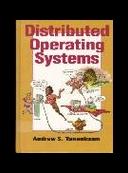Книга: Distributed operating systems
3.3. ELECTION ALGORITHMS
Many distributed algorithms require one process to act as coordinator, initiator, sequencer, or otherwise perform some special role. We have already seen several examples, such as the coordinator in the centralized mutual exclusion algorithm. In general, it does not matter which process takes on this special responsibility, but one of them has to do it. In this section we will look at algorithms for electing a coordinator (using this as a generic name for the special process).
If all processes are exactly the same, with no distinguishing characteristics, there is no way to select one of them to be special. Consequently, we will assume that each process has a unique number, for example its network address (for simplicity, we will assume one process per machine). In general, election algorithms attempt to locate the process with the highest process number and designate it as coordinator. The algorithms differ in the way they do the location.
Furthermore, we also assume that every process knows the process number of every other process. What the processes do not know is which ones are currently up and which ones are currently down. The goal of an election algorithm is to ensure that when an election starts, it concludes with all processes agreeing on who the new coordinator is to be. Various algorithms are known, for example, (Fredrickson and Lynch, 1987; Garcia-Molina, 1982; and Singh and Kurose, 1994).
- Algorithms
- Software Selection and Installation
- 3.1.3. Clock Synchronization Algorithms
- 3.2.4. A Comparison of the Three Algorithms
- 4.3.2. Design Issues for Processor Allocation Algorithms
- 4.3.3. Implementation Issues for Processor Allocation Algorithms
- 4.3.4. Example Processor Allocation Algorithms
- 4.4.5 Scheduling Algorithms
- CHAPTER 8 Using Selection Widgets
- Containers and algorithms
- Non-mutating algorithms
- Mutating algorithms




